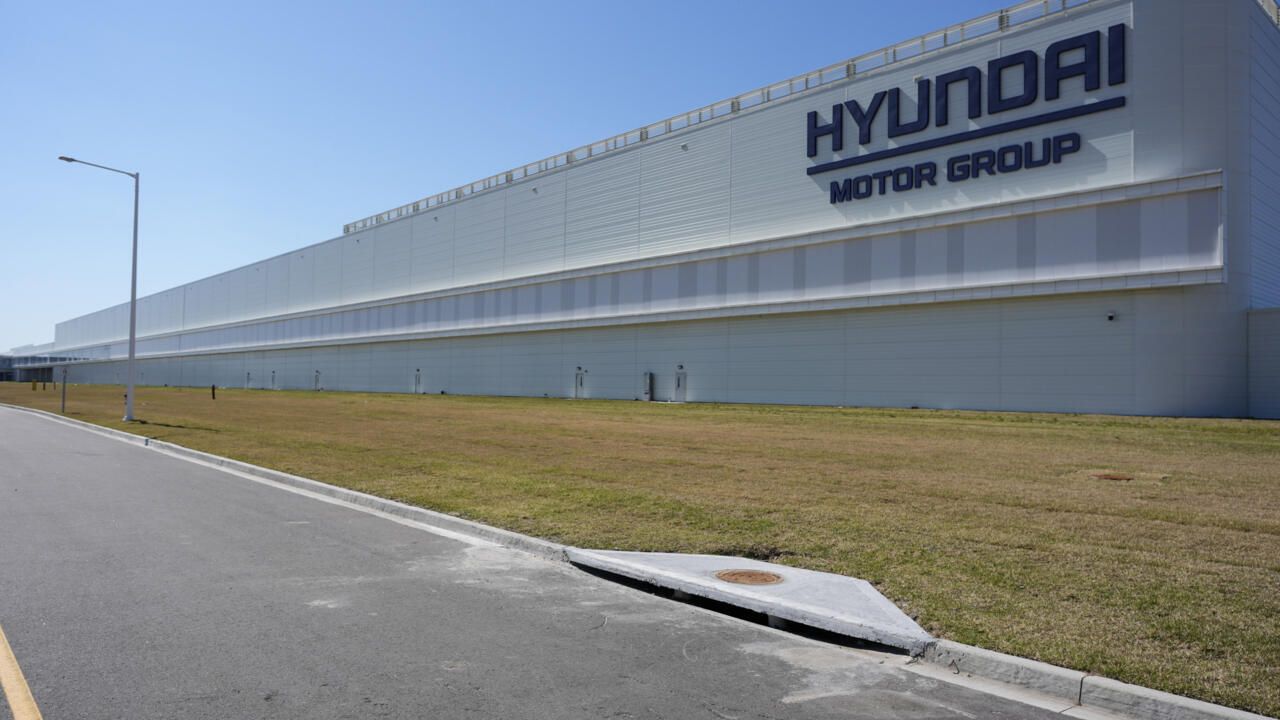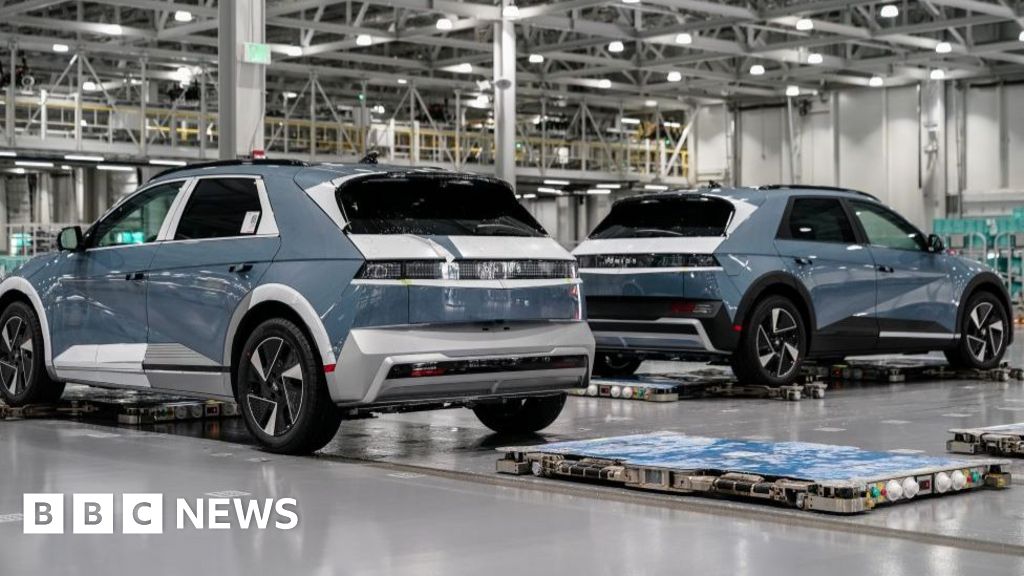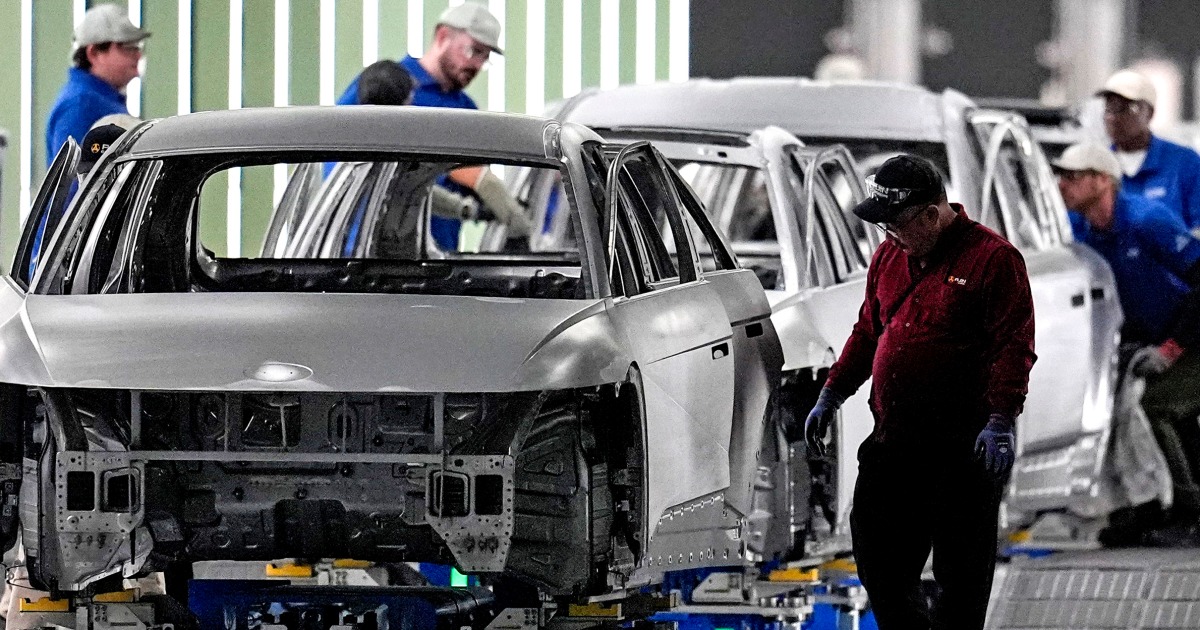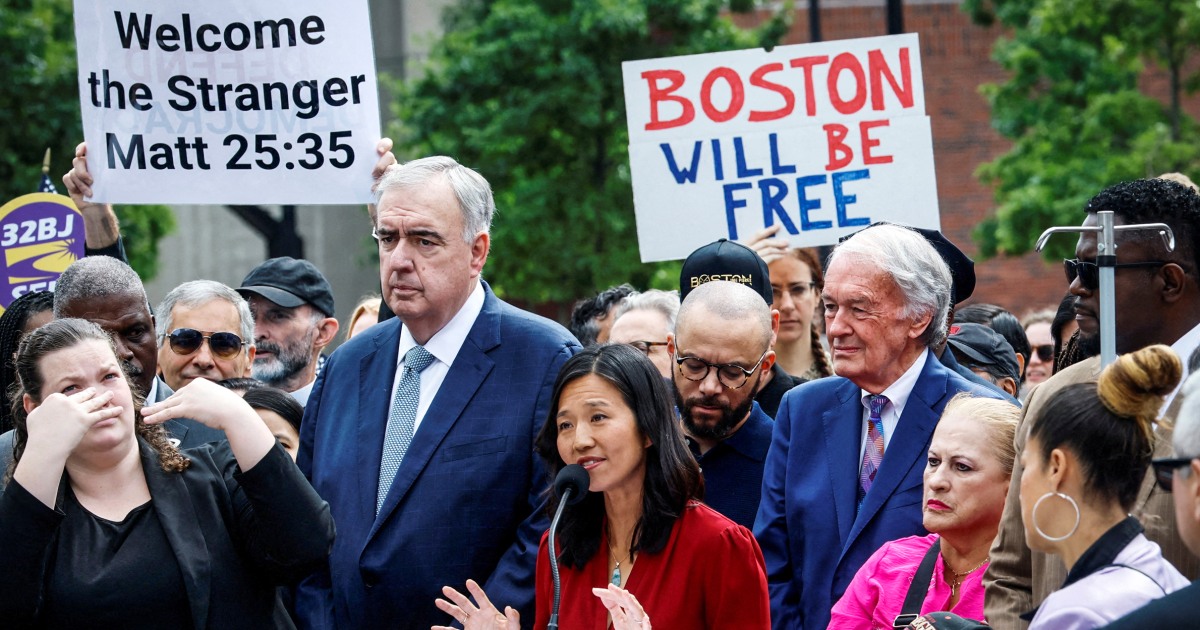US Immigration and Customs Enforcement Raid on Hyundai Plant Sparks Controversy

Introduction
In a major development project, US Immigration and Customs Enforcement (ICE) conducted a raid on a Hyundai plant, leading to the arrest of more than 300 South Korean nationals. This has raised concerns from South Korean officials, with Foreign Minister Cho Hyun expressing their deep concern over the incident. The move was hailed as the "largest development project", but has now sparked controversy and has been met with backlash from the South Korean government.
Key Details
The raid has caused tension between the US and South Korea, with the latter demanding answers and expressing their concern over the treatment of their citizens. The US has yet to release any details regarding the reasoning behind the raid, causing further confusion and frustration. The incident has also raised questions about the treatment of immigrant workers and the policies surrounding ICE raids. This is just one of the many instances where ICE has faced backlash and criticism for their handling of immigrant workers.
Impact
The arrest of hundreds of South Korean nationals has not only caused tension between the US and South Korea, but it also brings to light the ongoing issues and controversies surrounding immigration policies and the treatment of immigrant workers. This incident serves as a reminder of the importance of fair and just treatment of all individuals, regardless of their nationality or immigration status. It also highlights the need for reform and a closer examination of the policies and practices of ICE and other immigration agencies.
The United States Immigration and Customs Enforcement (ICE) is a federal law enforcement agency under the Department of Homeland Security, tasked with protecting national security and public safety through criminal investigations and immigration law enforcement. ICE enforces over 400 federal statutes related to customs violations, immigration, terrorism prevention, and trafficking[1]. It comprises two main operational branches: Homeland Security Investigations (HSI), which targets transnational crime, and Enforcement and Removal Operations (ERO), responsible for apprehending, detaining, and deporting undocumented immigrants[1].
ICE was significantly expanded and became the largest and best-funded federal law enforcement agency in U.S. history following the passage of the One Big Beautiful Bill Act in 2025, which bolstered its resources and operational capacity[1][4]. This expansion has coincided with record-high immigration detention numbers; as of September 2025, ICE held nearly 60,000 detainees, exceeding its congressionally funded detention capacity by over 140%, leading to overcrowding and concerns about detainees’ living conditions[2][3]. Notably, more than 70% of detainees lack any criminal convictions, with many charged individuals not convicted or charged for immigration-related offenses rather than violent crimes[2][3].
ICE’s detention facilities are heavily concentrated in states like Texas, Louisiana, and California, with Texas housing the largest detainee population in FY 2025[3]. The agency’s enforcement strategy has shifted towards expanded street-level operations, increasingly detaining individuals without criminal convictions[2]. ICE also operates several supporting divisions, including legal advisory and professional responsibility offices, reinforcing its broad administrative and operational framework[1].
In the current business and technology context, ICE’s scale, budget, and enforcement capacity reflect significant federal investment in immigration control infrastructure, affecting sectors ranging from detention management technologies to data analytics for law enforcement operations. However, the agency remains a contentious entity due to its enforcement practices and humanitarian concerns surrounding detention conditions and prioritization policies[1][2 Hyundai Motor Company, founded in 1967 and headquartered in Seoul, South Korea, is a leading global automotive manufacturer known for its broad portfolio of vehicles and technological innovation[5]. It operates the world’s second-largest automobile manufacturing plant in Ulsan, South Korea, with an annual capacity of 1.6 million units, and sells vehicles in 193 countries through 5,000 dealerships[5]. Hyundai is part of the Hyundai Motor Group, which also owns Kia Corporation and the luxury brand Genesis.
Hyundai has established itself as a major player in the global auto market, ranking as the third largest carmaker worldwide by production as of late 2024[5]. The company is aggressively expanding its electric vehicle (EV) lineup, including models like the Ioniq 6 and the upcoming Ioniq 7, alongside region-specific EVs such as the IONIQ 3 for Europe, India's first locally designed EV, and China-produced Elexio and electric sedans[1][3][5]. It plans to achieve global vehicle sales of 5.55 million units by 2030, with electrified vehicles (hybrids and EVs) accounting for 3.3 million units, reflecting a strong commitment to electrification and sustainability[1][2].
Hyundai’s innovation extends beyond vehicles into software and AI, advancing its Software-Defined Vehicle platform with AI-driven features and over-the-air updates, exemplified by technologies like Pleos Connect and AI assistants Atria, Gleo, and Capora[1]. The company is also investing heavily in next-generation battery technology, extended-range EVs launching from 2027, and manufacturing expansions aimed at increasing production capacity and efficiency globally[2].
Sustainability is a core focus, with Hyundai aiming for carbon neutrality by 2045, implementing circular economy initiatives such as recycling materials from end-of-life vehicles, and investing in renewable energy[4]. Financially, Hyundai has shown strong growth Discover related stories and their connections to this article Explore connected events with detailed insights and relationships Key entities mentioned across connected events Discover patterns and trends across related stories Zohran Mamdani meets President Trump at the White House to discuss a $21B housing plan for Sunnyside Yard and bipartisan housing reform. CNN review finds dozens of FBI witness interviews missing from Epstein files, fueling questions about transparency. Casey Means, Trump's surgeon general pick, faces uphill confirmation amid vaccine questions and Kennedy health policy ties. U.S. Secretary of State Marco Rubio plans a March 2-3 visit to Israel as Iran tensions rise over nuclear talks and regional security. Trump administration unveils an aggressive crackdown on healthcare fraud, freezing Minnesota funds and expanding Medicare/Medicaid integrity nationwide.About the Organizations Mentioned
US Immigration and Customs Enforcement
Hyundai
🔗 Connected Events Overview
📊 Quick Insights
📅 Connected Events Timeline
👥 People Involved in Connected Events
🏢 Organizations & Products
🏢 Organizations
🛍️ Products
💡 Connected Events Insights
🔥 Trending Topics
Trending Blogs in Politics
Mamdani's Bold White House Pitch to Trump

Missing FBI Records Spark Epstein Files Controversy

Casey Means Faces Uphill Battle as Surgeon General Nominee in Vaccine Scrutiny
Rubio's High-Stakes Israel Visit Amid US-Iran Tensions

Federal Crackdown on Medicaid Fraud: Minnesota First, Nationwide Expansion











